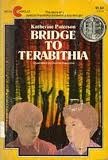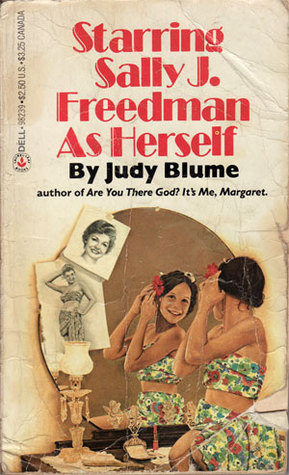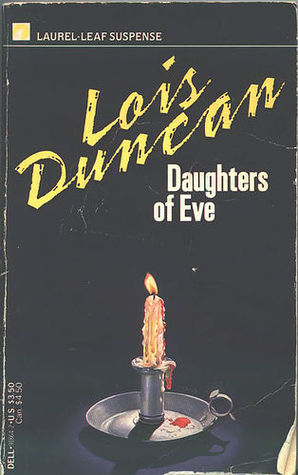Sorry that this post is late but welcome to week four of the Summer of Shelf Discovery reading project (project sounds so stiff. Adventure? Diversion? Vacation? Book Bender?) in which we a chapter of Lizzie Skurnick’s book memoir Shelf Discovery: The Teen Classics We Never Stopped Reading, and talking about the books she includes in each chapter.
Chapter 4 is “Read ‘Em and Weep: Tearing Up the Pages,” on the books that made us cry. Like the Kids-in-Danger trope of chapter 3, the Sad Book trope got me thinking: what is it that drew us to these books? What buttons did they push that were so alluring that we returned to these books again and again, knowing they made us sad? Is it like scratching a mosquito bite, or poking at a sore spot? Why did we watch The Champ and Terms of Endearment over and over? How did Lurlene McDaniel build a franchise on Dying Girl books?
For this week, I re-read Katherine Paterson’s Jacob Have I Loved. I marveled, though, that I couldn’t remember why it had made me cry. After reading, though, it makes sense. The book made me cry because it was complicated, and it didn’t have easy lessons, and because the narrator, Sara Louise, unkindly nicknamed Wheeze by her prettier more talented twin Caroline, struggled with ugly and awkward emotions and no lessons were spelled out. There wasn’t AN EVENT, as there was in books like Bridge to Terabithia, A Taste of Blackberries, A Summer to Die, et al.
As the older, good-grade getting sister of a younger, cuter, more attention-earning sister, I had a fierce love and identification with Louise. I knew what those ugly emotions felt like. I’d enacted some of those nasty behaviors, like telling my sister she was adopted (absurd if you see our family together) and that on family trips she should stay awake, as Mom and Dad didn’t love her as much, and the rest of us just might leave her in the middle of the night. (Some of this might be apocryphal, but it’s entered into family lore as Truth, so I’ve stopped trying to defend myself.)
So, what weepies did you read as a girl/teen, and why do you think we were drawn to them, often over and over? What are the modern weepies? John Green’s The Fault in Our Stars? Wonder by Palacio?
Hey, if you’re reading along, remember to comment, as Lizzie Skurnick has a signed copy and maybe a prize pack for one of you co-readers. And I HIGHLY recommend friending Lizzie on FB, to see many more covers and join the old-book lovers club.




